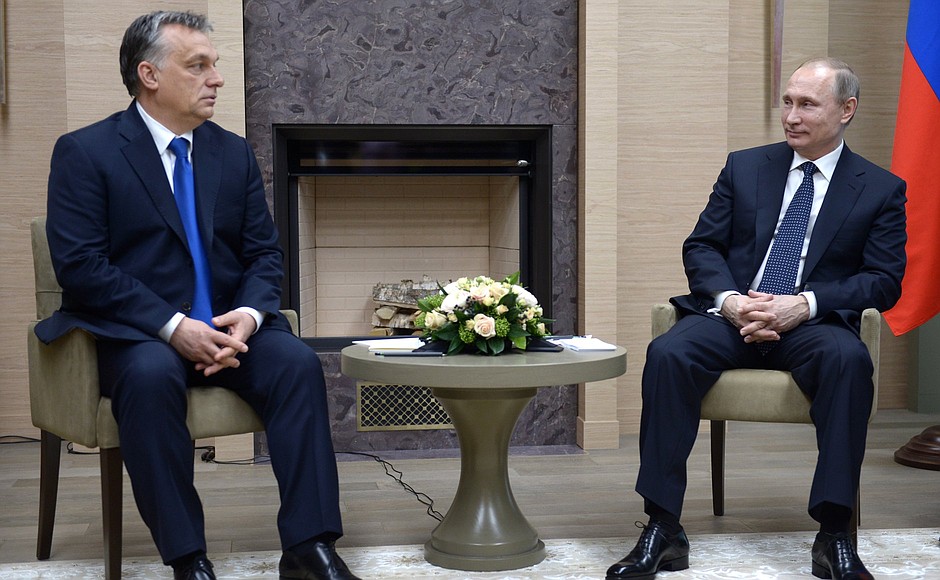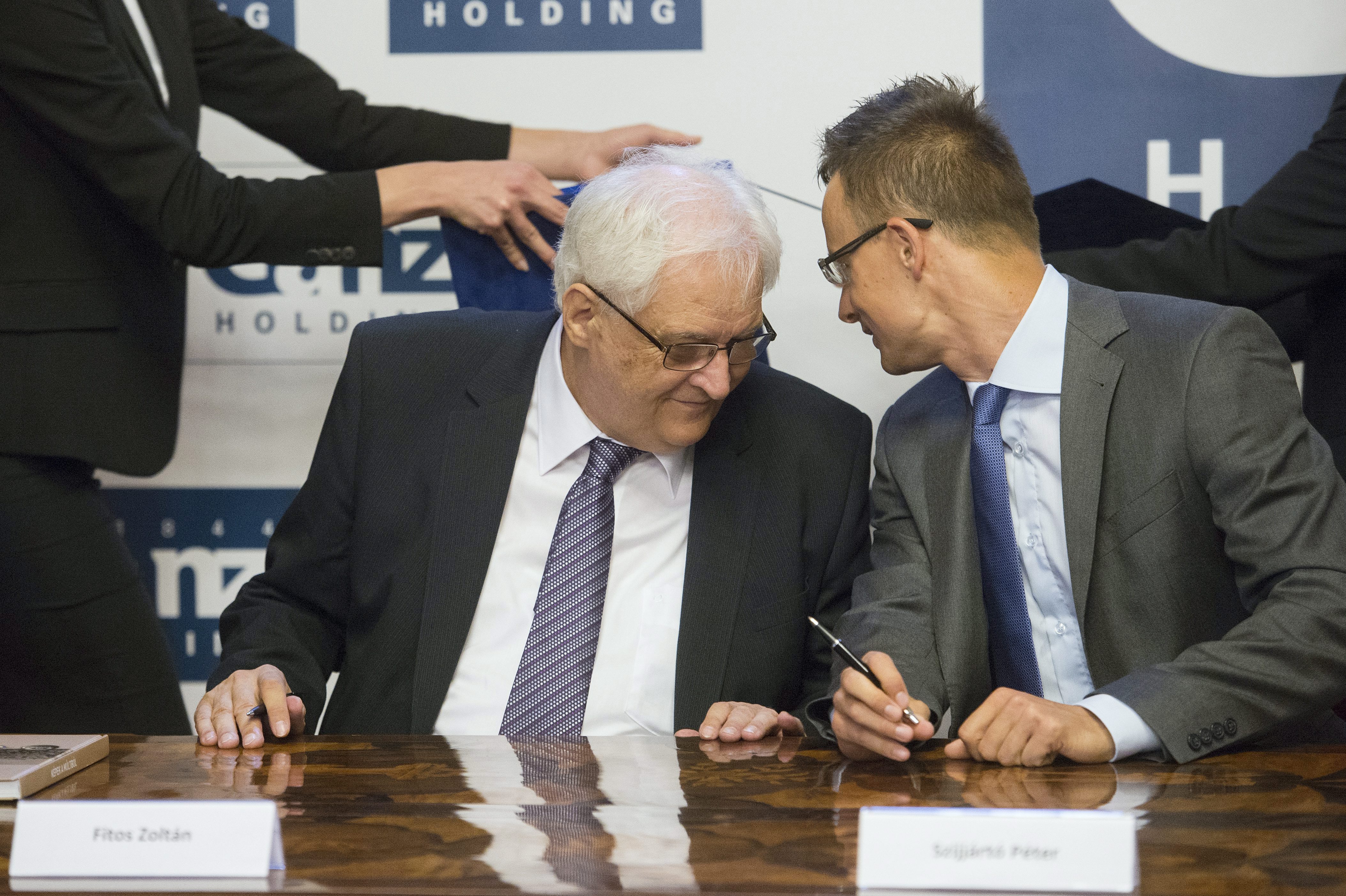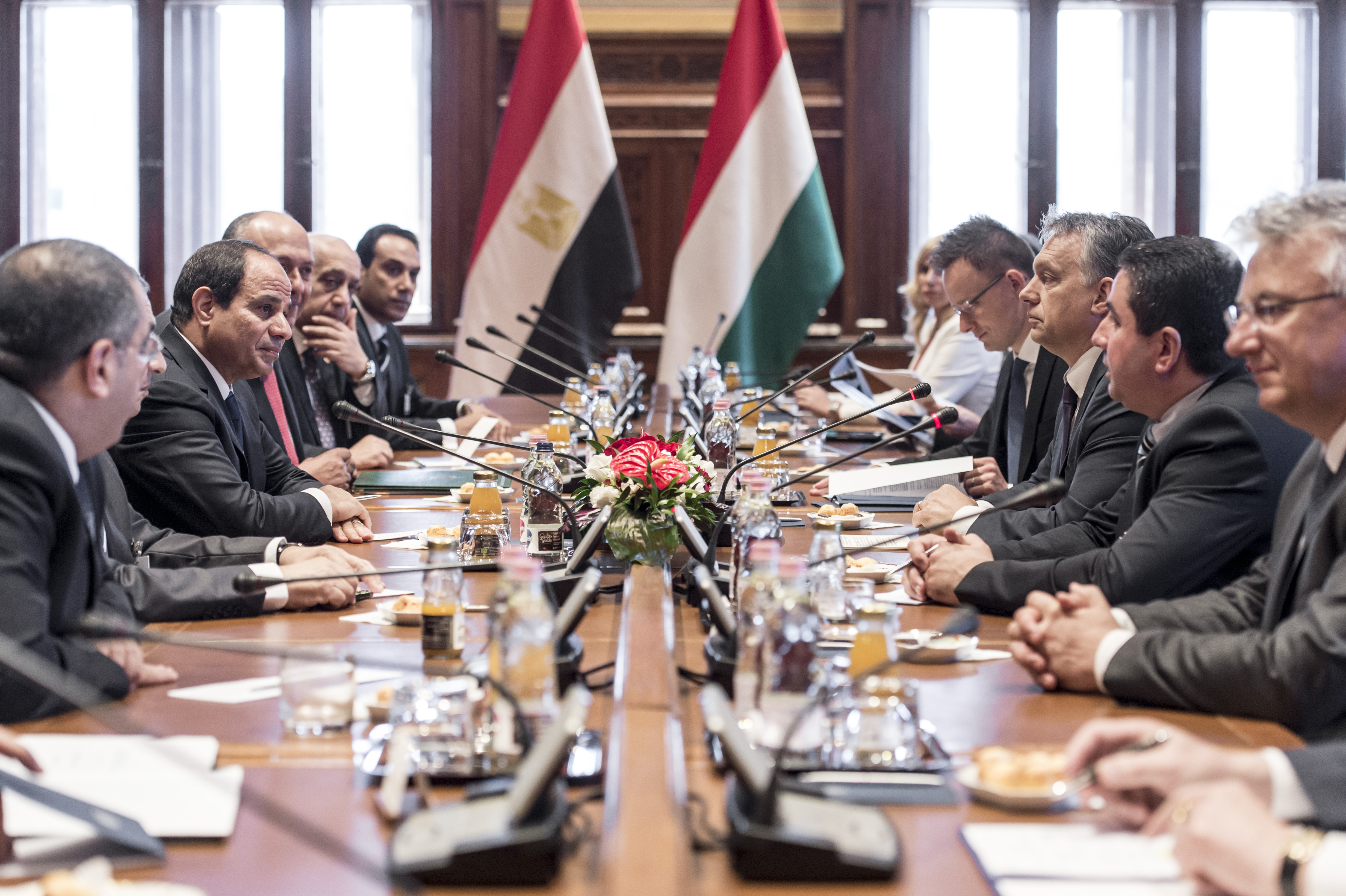How Viktor Orban’s government is favoring the Russians over a Hungarian company in a big business deal

A Hungarian company came close to a big international business deal in 2016. As the leader of a consortium, Ganz Group, which is dealing with mechanical engineering, won an Egyptian tender worth hundreds of billion forints to produce 700 railway cars.
However, the contract was never signed. Ganz won the tender with the backing of a state-owned Hungarian bank, but the deal fell through when the Hungarian government decided to redirect the loan to a group with Russian participation instead.
This episode is another example of the close relationship that has evolved between the governments of Russia and Hungary in recent years. The strong ties have mostly been visible in energy deals – most prominently the expansion of the Paks nuclear power plant – but the Hungarian government has also teamed up with the Russians in the railway transport industry.
In the case of the Egyptian tender, the Hungarian government eventually supported the Russian company, the subsidiary of which had upgraded the cars of Metro Line 3 in Budapest (and was widely criticized for the allegedly poor quality of the reconstruction). The importance of the Egyptian deal is shown by the fact the Hungarian Prime Minister Viktor Orbán and Russian President Vladimir Putin personally discussed the details of the project.
Eximbank, the Hungarian state bank that provides financial support for Hungarian companies doing business abroad, played a key role in this story. The Ganz-consortium applied for the Egyptian tender with the help of this bank. The Hungarian government gave this loan, worth 900-million euros, to a group in which the Hungarian Ganz company was replaced by the Russian railcar company.
According to Ganz’s own reports, the Hungarian government’s decision prevented the company from striking a deal with the Egyptians and resulted in a 1.6 million euros direct loss for Ganz. The Hungarian Ganz is currently looking for new opportunities in Egypt with a Spanish company.
Ganz did not respond to our questions, it only stated that it does not wish to provide any information about ongoing business issues. The Hungarian government and the Egyptian embassy in Budapest did not answer Direkt36’s questions.
The popular Magari
Ganz has been present in Egypt for almost 100 years. The company sold locomotives to the country even in the 1960s. “The Egyptians liked them, and called them “magaris”,” a source with knowledge about the company said. Magari refers to a version of the word “Hungarian”. Currently, Ganz produces sub-frames to railway cars, which is one of its most important parts.
In 2013, Egypt started preparing the tender for purchasing 700 railway cars. Ganz Motor, a member company of Ganz Group, decided to bid as the leader of a consortium, which also included another Hungarian and a Swiss company.
It was part of their tender application that Eximbank, a state-owned Hungarian bank that is supervised by the Ministry of Foreign Affairs and Trade and provides financial support to Hungarian companies doing business abroad, will support the project with a loan. “Ganz could not have financed the project alone, it needed Exim to provide money in advance,” a source knowing the project said and added that the amount totalled almost one billion euros.
Negotiations with the Egyptian party started in July 2014. At that time, the Ministry of Foreign Affairs reported that the members of the consortium and an Eximbank delegation visited Egypt because of the tender.
A few days later, the Egyptian Minister of Transport stated that “the Hungarian offer has several advantages.” One of them was the fact that the railway cars were to be assembled in Egypt, and Hungary already had experience in developing the Egyptian railway sector.

Fitos Zoltán leader of Ganz and Péter Szijjártó Péter in 2014
At the time, the cooperation between the Hungarian government and Ganz still seemed smooth. Five days after the announcement of the Egyptian Minister of Transport, the Hungarian government signed a strategic cooperation deal with Ganz Holding, the owner of Ganz Motor that was bidding for the tender. Péter Szijjártó, then state secretary for foreign, said that Eximbank would be supporting the Hungarian company in the Egyptian tender.
The Russian turn
In June 2015, Egyptian President Abdel Fattah el-Sisi visited Budapest and signed a railway cooperation agreement with the Hungarian government. This appeared to have further increased the chances of the Hungarian consortium. However, the tender then took an unexpected turn.
First, Egyptian newspapers started to report in December 2015 that the Russian bidders would be the winners of the tender instead of the Hungarians. Then, during a meeting between PM Orbán and President Putin in February 2016, the idea of cooperation between Russian and Hungarian companies came up. According to Hungarian economic daily Világgazdaság, Orbán and Putin discussed at the meeting that a joint offer of Hungarians and the Russian Transmashholding would increase their chances.
Metrovagonmas, a company linked to Transmashholding, was responsible for the upgrade of the cars of Metro Line 3 in Budapest, but it was heavily criticized for frequent malfunctions of the cars. In addition to the expansion of Paks nuclear power plant, the metro upgrade was the most important element of Russian-Hungarian relations. When in 2010 the Orban-government started negotiations about the problematic issues between the two countries, the Russians signalled quite soon that they were primarily interested in these two projects.
The railway cooperation was further deepened when Denis Manturov, the Russian Minister for Industry and Trade visited Budapest in March 2016. Hungarian state news agency MTI reported that he negotiated with Hungarian Minister Szijjártó, but according to Russian television RT, PM Orbán was also present at the discussion. “At present we are considering the possibility of submitting joint bids at tenders in the Middle East and North Africa, including Egypt,” Manturov said after the meeting.

Meeting between President Abdel Fattah Al-Sisi and Viktor Orban in 2015.
RT also reported that Transmashholding would be joined by a Hungarian state-owned company Dunakeszi Jármujavito in the tender. Previously, the Dunakeszi company, which deals with the renovation of railway cars, trams and metros, was supposed to be the partner of Ganz in the Egyptian project.
This was the first sign that Ganz might be left out from the business. Nevertheless, Ganz continued to design the railway cars for Egypt. According to a source with knowledge about the process, Ganz even modified the plans twice on the request of the Egyptians. The leadership of Ganz Motor Ltd. negotiated with Cairo several times via the Egyptian embassy in Budapest.
Ganz blames the Hungarian government
According to a financial report of Ganz, their consortium won the Egyptian tender in 2016. Representatives of the Egyptian railway company and several local ministries, as well as the staff of the Hungarian embassy in Cairo and of the local Ganz office were present at the announcement, according to a source familiar with this project.
However, the contract had not been signed and the source blamed it on the Hungarian government. “They did not want to cooperate with Ganz, they wanted to give the project to the Russians,” he said. He also added that the government did not provide any explanation to Ganz about why it wanted to exclude the company.
The failure hurt Ganz badly because it had already started the development of its factories. The steel frames were planned to be produced in a countryside factory, and the sub-frames from these pieces built in Budapest. This Egyptian order would have provided enough work for several years for the company, which have been struggling since the 1989 regime change, another source said.
Ganz summarized the events in a report about its 2016 activities. According to the report, which was made public but went largely unnoticed at the time, the consortium led by Ganz Motor won the Egyptian tender with the support of Eximbank. “After the tender victory, during the contract writing process, the Hungarian government switched the financing loan to the Russian competitor, but the Egyptian Railway did not contract them,” said the report.
Continuing with the Russians
Viktor Orbán visited Egypt at the ending of May 2016, shortly after Ganz was announced as the winner of the tender, a source familiar with the details said. According to news reports about the visit, the Hungarian and Egyptian parties signed a statement of interest about Eximbank providing a loan for the manufacturing of 700 railway cars. These press reports did not mention Ganz.
The Hungarian government remained focused on the cooperation with the Russians. Shortly after Orbán’s visit to Cairo, Minister Szijjártó signed an agreement with Russia about jointly producing railway cars to Egypt.
There is no information on the closure of the Egyptian tender. However, the Russian-Hungarian railway cooperation was back on the agenda this March, when, based on a Russian business paper, Hungarian news site Index.hu reported that the Russian Transmashholding could gain 50% share in the Hungarian state-owned company Dunakeszi Jarmujavito.
In the meantime, Ganz is trying to come up with a different solution for its presence in Egypt. Together with the Spanish company Stadler Valencia, it applied for a European Bank for Reconstruction and Development-financed project through which the Egyptians would like to purchase 6 trains (with one locomotive and 10 cars per train). According to a source with knowledge about this project, the tender is still open.
For the Hungarian company data we used the services of Opten.

